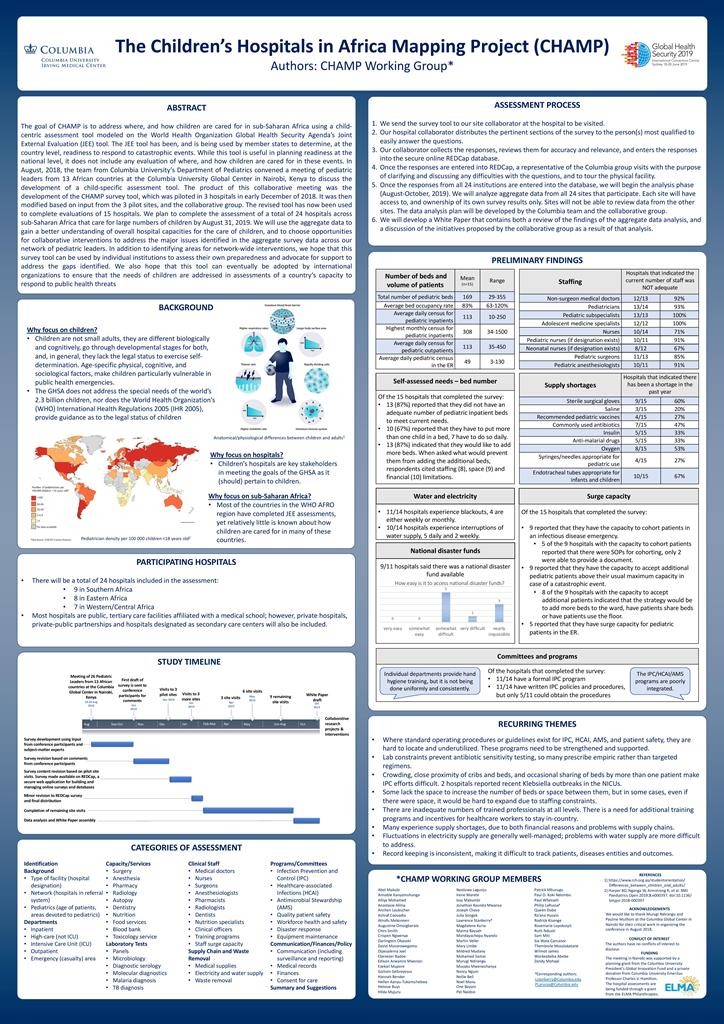Children are a key constituent of any society. In the event of national-scale emergencies, epidemics, and disasters, hospitals and medical institutions in Sub-Saharan Africa do not have a standard protocol, the capacity to mitigate such circumstances immediately, nor the resources to ensure children receive the stipulated and adequate care.
In August 2018, the Columbia Global Centers Nairobi, in partnership with Prof. P. LaRussa, Prof L. Stanberry, and Prof Wilmot James from Columbia University Medical Center, hosted a PGIF research study dubbed 'Sub-Saharan African Pediatrics Health Care Leaders' which discussed the development of a child-specific assessment tool at the Nairobi Center. The product of this collaborative meeting was the development of the CHAMP survey tool. The CHAMP survey provides a comprehensive assessment of the size, infrastructure, surge capacity, resources, services, staffing, programs and policies of a children’s hospital, i.e., a major medical facility with dedicated space allocated for the inpatient and outpatient care of large numbers of children.
The meeting was attended by pediatric doctors from Ethiopia, Malawi, Rwanda, South Africa, Lesotho, Uganda, Tanzania, Zambia, Mozambique, Ghana, Liberia, and Kenya who also shared their views on emergency child healthcare. The representatives also developed a standardized model that: evaluates and provides recommendations for improving existing services and one that advocates for additional resources to improve the care of children and adolescents, especially during critical events. The baseline information generated developed the child-centric Joint External Evaluation (JEE) tool used during the mapping-out of the second of the project-the mapping out of select health institutions in the region to evaluate their protocol standards.
The second phase of the workshop – the 'Children's Hospitals in Africa Mapping Project (CHAMP) project, funded by the ELMA Foundation and Columbia University, embarked on a mapping survey of children's hospitals. The project utilized the Joint External Evaluation (JEE) tool to conduct onsite assessments and recommendations to the respective hospitals on the pediatric emergency protocol. To date, CHAMP has completed 15 of the envisioned 24 project site visits. Thus far, the project uses data to understand overall hospital capacities to care for children. The CHAMP projects will also survey a tool that individual institutions will adopt to assess their preparedness and advocate for additional support to champion enhanced pediatric care in the region.
